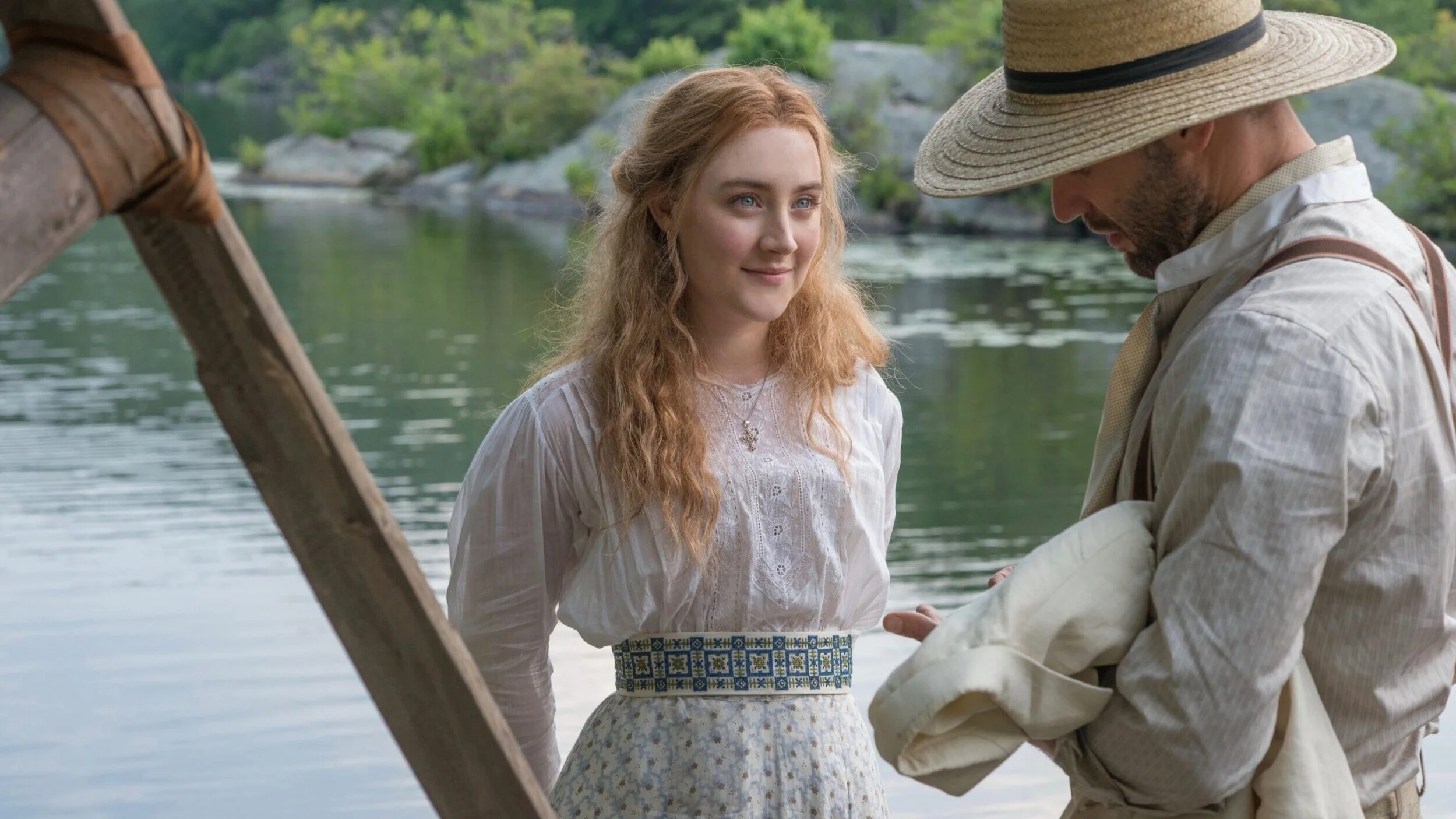The Seagull
The first major screen outing for Chekhov's famous play since 1968.
Saoirse Ronan and Corey Stoll
Although Anton Chekhov’s play The Seagull is recognised as a classic, it is a long time since filmgoers here had the opportunity to see a screen version. Now, however, we have this film treatment by Michael Mayer which, as adapted by Stephen Karam, retains the setting of Russia early in the 20th century. Most of those familiar with this tale of unrequited loves and lost hopes will have seen it on the stage and accepted Russian characters speaking English. What is a little harder to take in this film version is that the music score has a minimalistic tone that sounds distinctly at odds with the period being evoked - the movie is always better when the music shuts up.
For newcomers, Mayer’s film offers a clear introduction to a world in which virtually everybody on the country estate of Sorin (Brian Dennehy) is in love with the wrong person. His nephew, Konstantin (Billy Howle), a would-be playwright is in love with local girl Nina (Saoirse Ronan) who wants to be an actress but, when Konstantin’s mother, Irina (Annette Bening), herself an established actress, arrives with the novelist Boris Trigorin (Corey Stoll) who is her lover, Nina promptly falls for him. Meanwhile, Masha (Elisabeth Moss), the daughter of the estate manager ignores the lovelorn young teacher Medvedenko (Michael Zegen) who is in love with her because she has long doted on Konstantin in spite of knowing that his affections lie with Nina. There's an absurdity in these mismatched emotions that can occasionally be comic but the pain of love is at the heart of the work, all the more potent when love continues to persist when it is not returned. At times these two contrasting elements sit together uneasily in this version.
Michael Mayer’s direction at times indulges in very close close-ups and in self-conscious camera movement yet also carries a whiff of the stage about it and Bening’s performance might be more at home in the theatre. Meanwhile, Ronan’s Nina plays down the vulnerability of the young girl but becomes strongly felt in her later scenes. As for Karam’s adaptation it loses the period tone on occasion, provides at least one sudden touch of melodrama and unwisely offers a prologue which actually turns out to be a late scene from which the tale is told in flashback (this makes its eventual return rather confusing). Such restructuring serves little purpose.
The cast is certainly a decent one, but nobody offers a definitive interpretation of any of the roles and the attempt to keep things compact and fast moving robs us of some of the quintessentially Russian mood so crucial to Chekhov. Anyone who has seen Sidney Lumet’s 1968 version will know that it was decidedly uneven, but it was memorable for James Mason’s portrayal of Trigorin and for an in-depth portrayal of Konstantin by David Warner. All told, this new film is a passable version of a great play, undoubtedly adequate as an introduction to the work but in no way special.
MANSEL STIMPSON
Cast: Annette Bening, Saoirse Ronan, Elisabeth Moss, Corey Stoll, Billy Howle, Glenn Fleshler, Mare Winningham, Michael Zegen, Jon Tenney, Brian Dennehy, Ben Thompson, Barbara Tirrell.
Dir Michael Mayer, Pro Jay Franke, David Herro, Tom Hulce, Robert Salerno and Leslie Urdang, Screenplay Stephen Karam from the play by Anton Chekhov, Ph Matthew J.Lloyd, Pro Des Jane Musky, Ed Annette Davey, Music Nico Muhly and Anton Sanko, Costumes Ann Roth.
Laluchien/Mar-Key Pictures/Artina Films/KGB Media/Hyde Park International-Thunderbird Releasing.
99 mins. USA. 2017. Rel: 7 September 2018. Cert. 12A.


